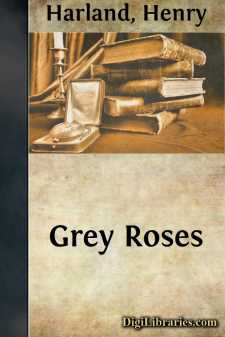Categories
- Antiques & Collectibles 13
- Architecture 36
- Art 48
- Bibles 22
- Biography & Autobiography 813
- Body, Mind & Spirit 142
- Business & Economics 28
- Children's Books 13
- Children's Fiction 10
- Computers 4
- Cooking 94
- Crafts & Hobbies 4
- Drama 346
- Education 46
- Family & Relationships 57
- Fiction 11828
- Games 19
- Gardening 17
- Health & Fitness 34
- History 1377
- House & Home 1
- Humor 147
- Juvenile Fiction 1873
- Juvenile Nonfiction 202
- Language Arts & Disciplines 88
- Law 16
- Literary Collections 686
- Literary Criticism 179
- Mathematics 13
- Medical 41
- Music 40
- Nature 179
- Non-Classifiable 1768
- Performing Arts 7
- Periodicals 1453
- Philosophy 64
- Photography 2
- Poetry 896
- Political Science 203
- Psychology 42
- Reference 154
- Religion 513
- Science 126
- Self-Help 84
- Social Science 81
- Sports & Recreation 34
- Study Aids 3
- Technology & Engineering 59
- Transportation 23
- Travel 463
- True Crime 29
Henry Harland
Henry Harland (1861–1905) was an American-born novelist and editor known for his works in the aesthetic and decadent literary movements. He is best remembered for his novel "The Cardinal's Snuff-Box" (1900), which achieved popular success for its light romance and elegant prose. Harland also served as the editor of the influential literary magazine *The Yellow Book*, which became a key platform for fin-de-siècle literature and art. Some of his other notable works include "Mademoiselle Miss" and "The Lady Paramount".
Author's Books:
Sort by:
by:
Henry Harland
The Lady Paramount I On the twenty-second anniversary of Susanna's birth, old Commendatore Fregi, her guardian, whose charge, by the provisions of her father's will, on that day terminated, gave a festa in her honour at his villa in Vallanza. Cannon had been fired in the morning: two-and-twenty salvoes, if you please, though Susanna had protested that this was false heraldry, and that it...
more...
by:
Henry Harland
I The coachman drew up his horses before the castle gateway, where their hoofs beat a sort of fanfare on the stone pavement; and the footman, letting himself smartly down, pulled, with a peremptory gesture that was just not quite a swagger, the bronze hand at the end of the dangling bell-cord. Seated alone in her great high-swung barouche, in the sweet April weather, Lady Blanchemain gave the interval...
more...
by:
Henry Harland
I. I woke up very gradually this morning, and it took me a little while to bethink myself where I had slept—that it had not been in my own room in the Cromwell Road. I lay a-bed, with eyes half-closed, drowsily look looking forward to the usual procession of sober-hued London hours, and, for the moment, quite forgot the journey of yesterday, and how it had left me in Paris, a guest in the smart new...
more...
by:
Henry Harland
I "The Signorino will take coffee?" old Marietta asked, as she set the fruit before him. Peter deliberated for a moment; then burned his ships. "Yes," he answered. "But in the garden, perhaps?" the little brown old woman suggested, with a persuasive flourish. "No," he corrected her, gently smiling, and shaking his head, "not perhaps—certainly." Her small, sharp...
more...





